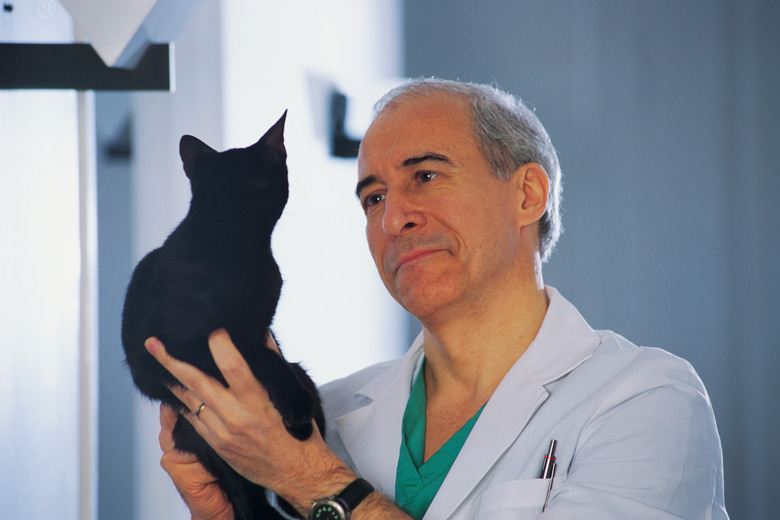Relief Of Cold & Congestion In Cats
While cats cannot catch the same virus that causes human colds, they can catch different types of respiratory illnesses that seem like a cold. Symptoms of these illnesses present themselves anywhere between two days and two weeks after the cat is exposed to the virus. The "cold" usually begins with sneezing and progresses to conjunctivitis, eye and nasal discharge, and in severe cases even mouth breathing. According to writers at the website www.cat-health-guide.org, the illness can last up to four weeks, depending on the virus that caused it.
Treatment Through Medication
Treatment Through Medication
Veterinarian-prescribed antibiotics are often used to treat cold symptoms in a cat. While antibiotics have no effect on a viral infection, your cat's illness is probably accompanied by a slight bacterial infection as well, which is what the antibiotics will treat. Antibiotics can be administered via injection or given orally. If your cat's illness is caused by a fungal infection (considered very rare), anti-fungal medications are administered. Finally, antihistamines are useful for treatment of cat colds. Never give your cat any medication without first consulting your veterinarian.
Congestion Treatments
Congestion Treatments
Vaporizers are very helpful in helping humans deal with congestion, and they are equally useful for cats. Simply close off a small room for your cat, like a bathroom or bedroom, and run a cool steam vaporizer in the room. Make your cat a comfortable bed and provide him with food, water, litter box, etc. Allow the vaporizer to work its magic on his breathing. Ask your veterinarian which treatment would be best for your cat.
Treatment At Home
Treatment At Home
Medications work wonders toward getting your cat on the mend, but they are only part of the process. Make sure the cat stays warm and comfortable. Treat any secondary symptoms of the illness (diarrhea, etc.). Ask your veterinarian if you should place your cat on a special diet until he recovers, and be sure that your cat eats and drinks regularly. Foods with strong smells such as tuna fish are a great way to get a cat with a stuffy nose to eat. Finally disinfect your cat's environment regularly. Wash his dishes and bedding to prevent further spreading of the illness and to speed his recovery.
Always check with your veterinarian before changing your pet's diet, medication, or physical activity routines. This information is not a substitute for a vet's opinion.
